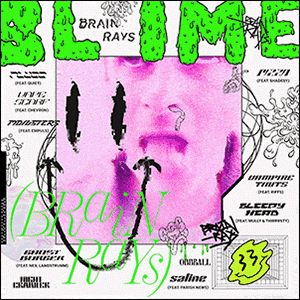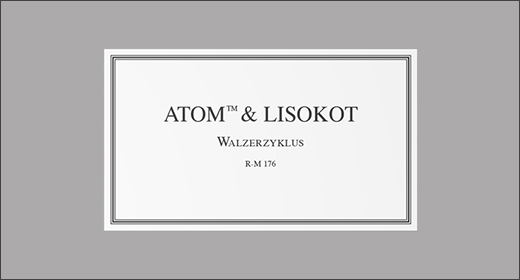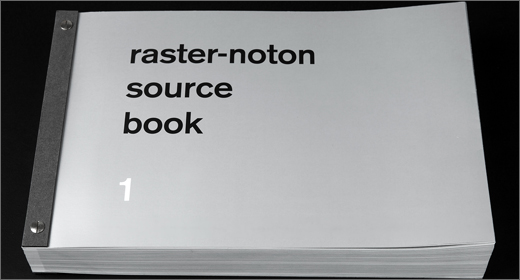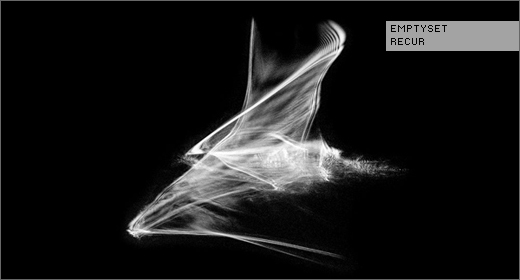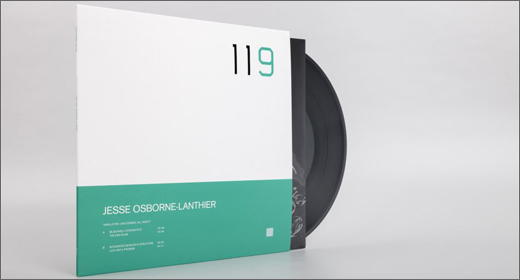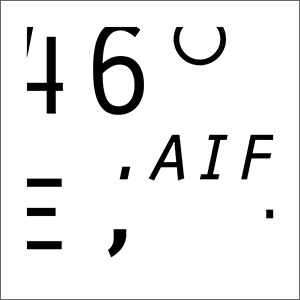HD is a positive coup for Raster-Noton, one that extends the ethos of the label in unexpected directions thanks to the diversity of Uwe Schmidt. It is serious, fun, political, reverential, minimal and brash all in a taut forty-three minutes.
 It takes a seriously dedicated fan of the frighteningly prolific and diverse Uwe Schmidt to keep track of all of his releases across more than sixty different aliases. In the last few years, Atom™ has been the most notable, in particular after two releases on the minimalist and experimental Raster-Noton label. It appears that Schmidt has decided it is time to unify his output under a single nom-de-plume. Consequently, his output under the especially apt moniker, Atom™ already reflects that cornucopian diversity as you’ll soon discover when HD reveals just how little it has in common with either Liedgut or Winterreise before it. Instead it forms a kind of sequel to his Pop Artificielle album of cover versions released under the name LB back in 1998, only this time with almost all original material.
It takes a seriously dedicated fan of the frighteningly prolific and diverse Uwe Schmidt to keep track of all of his releases across more than sixty different aliases. In the last few years, Atom™ has been the most notable, in particular after two releases on the minimalist and experimental Raster-Noton label. It appears that Schmidt has decided it is time to unify his output under a single nom-de-plume. Consequently, his output under the especially apt moniker, Atom™ already reflects that cornucopian diversity as you’ll soon discover when HD reveals just how little it has in common with either Liedgut or Winterreise before it. Instead it forms a kind of sequel to his Pop Artificielle album of cover versions released under the name LB back in 1998, only this time with almost all original material.
The germ of HD began back in 2005 as Schmidt made the first recordings for an album provisionally titled Hard Disk Rock. Due to a number of hard disk disasters that resulted in the mastered versions being lost several times, however, the project remained unreleased. Over time Schmidt either lost interest in or came to dislike more and more of the original songs and only a few have survived, albeit in radically altered forms, on this newly and ambiguously named new album.
As such, HD is in some ways an album of extremes. Schmidt is clearly channeling his love of all things Kraftwerk at numerous points on HD, for example. The micro-minimal “Pop HD” almost disappears completely at times, fades and silence as important as the polished beats, clicks, cuts and catchily spoken words of Jean-Charles Vandermynsbrugge, the essence of which is given greater heft on the electricity-drenched “Strom,” another exquisite exercise in restrained and minimal electro-pop. In fact, many of these subtler moments of HD turn out to be its finest, particularly the brooding electro of “Riding The Void” that bubbles under with sizzling bass pads and a motorik pulse, at one point threatening to blow the speakers with a frighteningly intense, repeated sub-bass-drop.
At several key moments on HD, however, Schmidt takes some time to vent what sounds like a long repressed anger and frustration at the politics and state of the popular music scene today. The virulent “Empty” starts where The Buggle’s “Video Killed The Radio Star” left off, but this time embarks on a gleeful, gloating assault on the vacuousness and slow demise of MTV heard in the repeated words “Empty… MTV” of the chorus, the death of the video era and rise of the Internet (“MP3, killed the MTV. I am thrilled… yeah!”). Stabs of electric guitar rip through the pacy electro, until the piece begins to glitch wildly into chaotic Squarepusher territory.
Meanwhile any ambiguity in the message arising from the odd phrasing of the titular chorus on “Stop (Imperialist Pop)” is quickly dispelled by the amusing and decidedly hostile lyric: “Gaga, Gomez, Timberlake. Give us a fucking break.” These moments of anger frequently throw subtlety to the wind and in the case of “Stop (Imperialist Pop),” quite specifically enumerate the offending corporate music giants and their insipid, homogeneous and exploitative output.
Atom™ also catalogs a number of other rock and pop genres and tropes. “The Sound Of Decay” fuses irradiated, growling, blues vocals, pads and guitars shot through with the occasional cascading burst of sequined prog-rock synths. Classic rock and roll is tackled with an Atom™ cover version of The Who’s “My Generation” and it is here in particular that attention is drawn to Schmidt’s forensic attention to vocal manipulation, glitching and cutting them up in ways that threaten to completely subvert the original lyrics. On top of the fact that in this new context the track comes across almost as an anti-hipster diatribe, his use of the glitch and/or hanging pause threaten obscenity (“Why don’t you all just f…”) and alternate meanings (“Things they do look awful…”) any number of times.
Jamie Lidell is amply capable of impersonating Prince at the best of times, but in confluence with Schmidt’s ode to drum machines plus the spelling and subject of the title “I Love U (Like I Love My Drum Machine)” then like Sylvain Chauveau mistaken for David Sylvian, this might as well be a Prince track. Of particular interest is the bonus “I Love U (Vocapella)” (available only when ordering direct from Raster-Noton) which strips almost everything but Lidell’s voice from the mix, leaving just enough to provide some semblance of structure to the silence, but wonderfully emphasizing the attention to detail in both his performance and all the vocal post-processing.
There’s even a list song right at the end of HD, as “Ich Bin Meine Machine” announces thirteen separate frequencies ranging from twenty to twenty-thousand hertz, followed by bleeps and sub-bass thundering through barely-audible dog-bothering sound fx.
Worth noting is the packaging for this release which comes in a gorgeous and, atypically for the label, largely black, stickered six-panel digipak including a twenty-page lyric booklet—a very nice touch.
HD is a positive coup for Raster-Noton, one that extends the ethos of the label in unexpected directions thanks to the diversity of Uwe Schmidt. It is serious, fun, political, reverential, minimal and brash all in a taut forty-three minutes. I mean seriously, how can you not buy a pop record that’s released on Raster-Noton?
HD is available on Raster Noton. [Release Page | Atom™]









